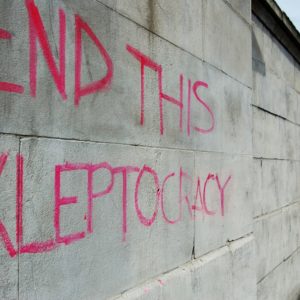
Tax Haven Abuse: The Burden of the Middle Class
On Tax Reform, Congressional Leaders Propose Widening Loopholes for Multinationals at Expense of Domestic Businesses and Middle Class Taxpayers
Much of the analysis of the 2016 election reflects on a middle class that feels overburdened. While the economy has certainly improved since the recession, one thing has gotten worse that may be partially to blame—offshore tax haven abuse. A new report from U.S. PIRG Education Fund finds that multinational companies dodge an estimated $147 billion in federal and state taxes annually through offshore tax haven loopholes, shifting that burden instead onto small businesses and individual taxpayers. Titled “Picking Up the Tab 2016: Small Businesses Bear the Burden for Offshore Tax Havens,” the study estimates that each small business, on average, owes $5,186 more on its annual tax bill to collectively make up for the federal and state corporate tax revenue lost to offshore tax havens.






